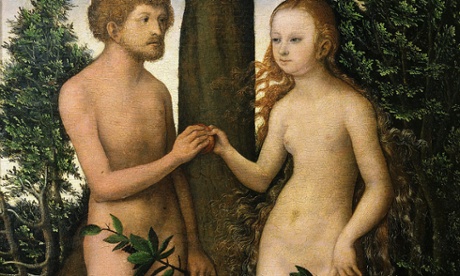
The distortion of sex, particularly in the Muslim world, is “a political issue” which is one of the most important challenges facing writers today, Hanif Kureishi told a packed audience at the Jaipur literature festival on Friday.
Speaking alongside novelists Nicholson Baker, Sarah Waters and Deepti Kapoor in a session titled “Basic instinct”, he argued radical Islam thinks about pleasure “all the time ... but it thinks about it from a negative perspective”.
“It’s a death cult, it’s extreme fascism,” Kureishi said. “You have to have a resistance against anti-pleasure. So think about this: every time you’re fucking, you’re defeating political Islam.”
According to Kapoor, the portrayal of sex is not only an issue in Islam but also in Hinduism. “That’s what’s so different between the west and here,” she said, “there are so many taboos that are just waiting to be broken.” Her first novel, A Bad Character, deals with the realities of life as a single woman in Delhi. “For me the power came from pushing boundaries. In India, particularly, where women don’t even think about it, let alone write about it, writing about sex is a political act.”
Waters argued that in the west, where sexualised imagery involving perfect young bodies is ubiquitous, writers need to reflect the complexities of sexual relations. “It’s much more messy and you want to do justice to that messiness,” she said. Her most recent novel, The Paying Guests, is set in the aftermath of the first world war, charting a relationship which develops between two young women.
Writers of historical fiction need to understand the cultural context of sexuality, Waters continued. “We tend to think of sex as something that takes us outside culture and society, but sex is part of the culture. Even the things we thought were intimate in the 80s have shifted. In different historical periods very small gestures could be incredibly erotic: a certain sort of glance or a brush of a hand or a skirt. Going back to the Victorian period you have to consider how people thought about their bodies, how would they have had sex?”
It is a particular challenge in a lesbian context as so little is written down, added Waters, who said her research material included sexual memoirs, autobiography and some pornography – “though pornography is always a fantasy”.
All four novelists agreed that writing good sex poses a technical challenge. Nicholson Baker, whose 2011 book A House of Holes was described by critic Peter Conrad as “an anthology of orgies”, confessed to being part of “the porn generation”.
“I’ve seen a lot of it,” he said. “The problem is that naked is so naked that it’s not funny and the thing about sex is that it is so funny – you don’t have to see people naked. Nice people sharing orgasms and being funny is a space that prose can inhabit that videos can’t.”
At the time when he wrote My Beautiful Laundrette, a kiss between two men seemed shocking, said Kureishi, while in western literature today, sex was so ubiquitous that the real taboo-buster would be a novel about a happily married couple. But Waters argued that it was still a risky subject for women writers to tackle.
“Women are in danger of being over-identified with the sex in their books,” she said. “I’ve written about murder and I don’t think anyone ever thinks about me as a murderer.”

